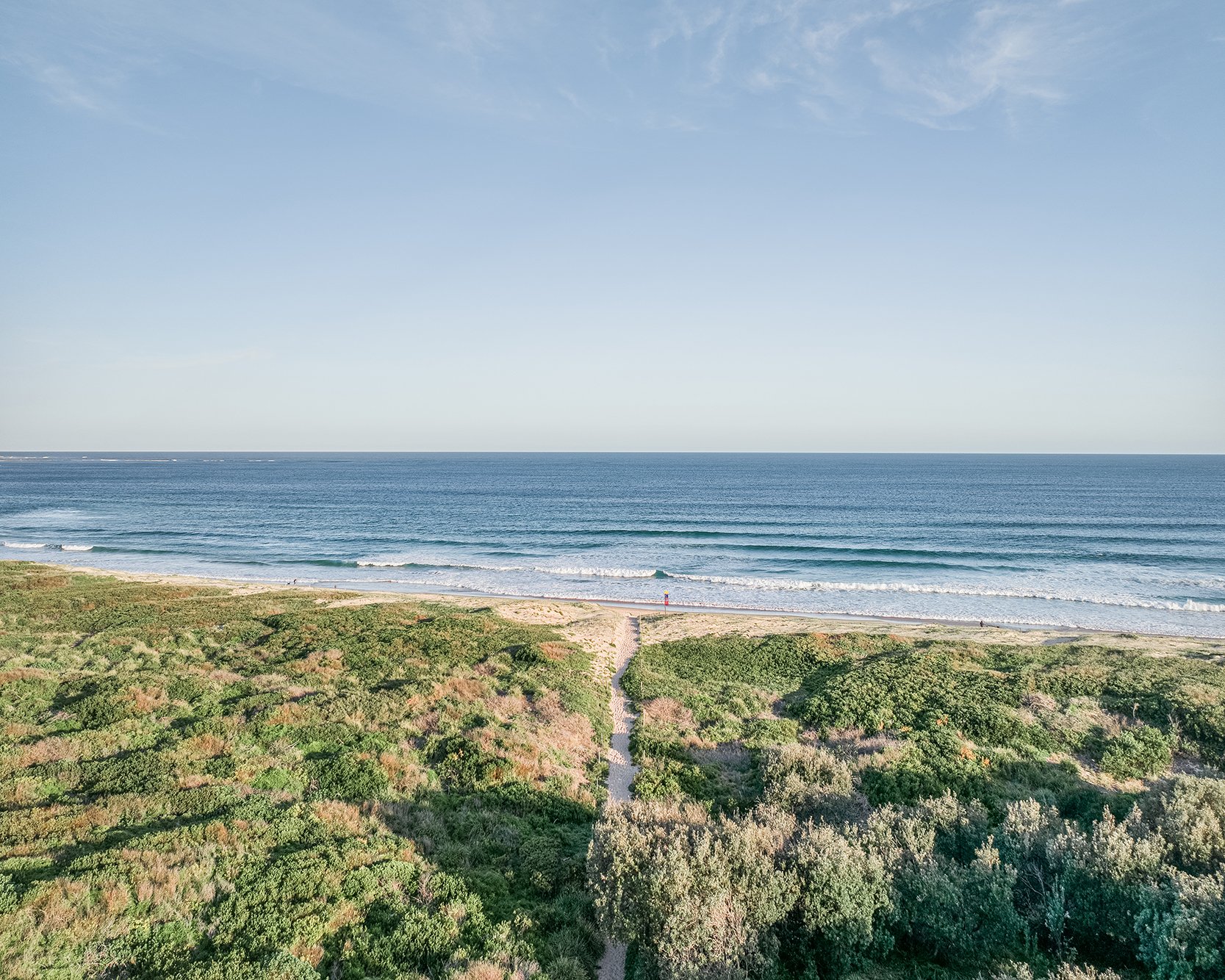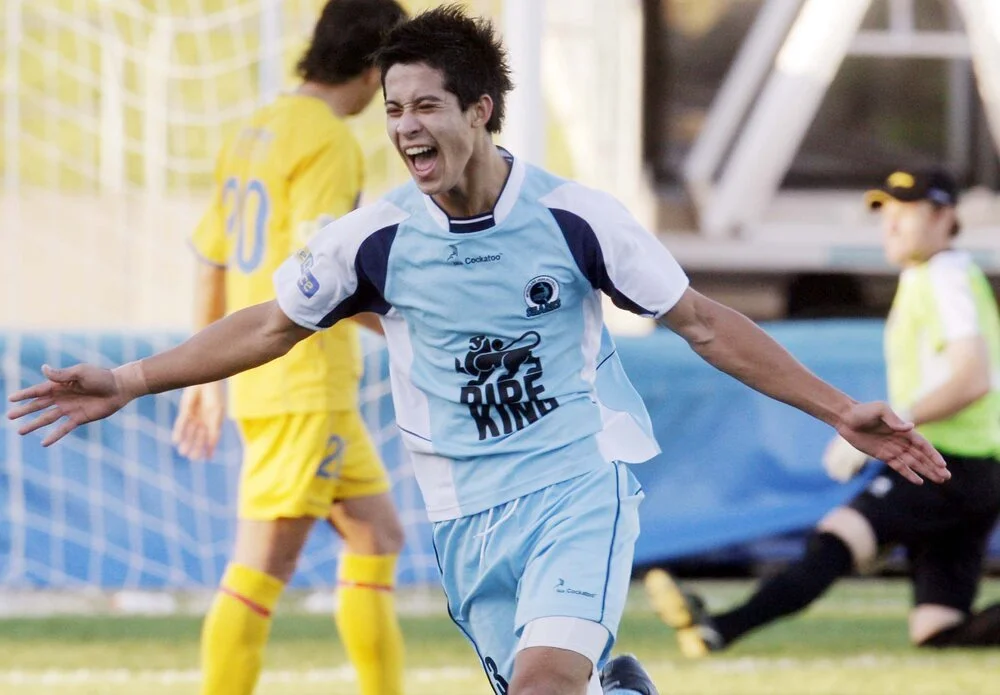
A PROUD HISTORY
Founded in 1930 as Sutherland United SFC, our club has a rich history of success. Since reaching the top flight in 1971, we’ve never been relegated, a testament to our resilience and commitment to excellence. Built on homegrown talent and strong community spirit, we continue to shape the future of Australian football.
Pictured: Paul Smith, our humble stalwart scoring the winning goal against Manly to see Sharks promoted to 1st division in 1971. An iconic moment.
Early Years and Formation
Sutherland Sharks FC traces its origins back to the establishment of Sutherland United SFC in 1930. By 1936, the club had grown significantly, leading to a split and the formation of what would become the present-day club under the name Casuals Soccer Football Club.
In the post-World War II era, the club found success in the St George Football Association before stepping up to the Metropolitan Soccer League in 1947, effectively Sydney’s second division. After winning the league in just their second season, they earned promotion to the NSW Soccer Association First Division. However, financial constraints meant the club was unable to take up the opportunity, delaying their move to the top tier for another 24 years.
Name Changes and Establishing a Home
In 1949, the club rebranded as Sutherland Shire Casuals SFC, reflecting its growing presence in the region. A year later, it secured a long-term lease for Seymour Shaw Park, though the club continued to use Sutherland Oval until it permanently moved to Seymour Shaw in 1959. In 1955, the club changed its name again to Sutherland Shire Soccer Football Club.
Community Growth and Early Success
Throughout the 1960s, the club continued to strengthen its role in the community. In 1961, it briefly merged with a struggling St George district club, adopting the name Sutherland-St George SFC before reverting to its original identity a few years later. That same year, the club hosted an international fixture at Seymour Shaw Park against the Fiji national team, drawing an estimated 4,000 spectators in a 5-3 loss.
In 1966, the club was granted a liquor licence and opened a social club in Miranda, which operated successfully until financial difficulties forced its closure in the mid-1980s.
Rise to the Top Flight
The 1970s proved a defining period for the club. Under coach Mike Johnson, the team won the NSW Division 2 championship in 1971, securing promotion to the state’s top league for the first time. The club has remained at this level ever since, holding the record for the longest uninterrupted tenure in NSW’s top state competition.
Major Trophies and Early Challenges
The early years in the top flight were challenging, with the team finishing near the bottom of the ladder until 1977, when they reached the semi-finals for the first time. The following year saw the club win its first major trophy, the Ampol Cup, before securing a remarkable grand final victory against Sydney Croatia with a 2-1 win in a replay at Wentworth Park.
This success marked the beginning of a long-standing commitment to homegrown talent, a philosophy that continues to shape the club today.
Consistent Contenders
Throughout the late 1970s and 1980s, Sutherland Sharks remained a regular semi-finalist and added further silverware, including a second Ampol Cup title in 1981 and another grand final victory in 1986, defeating Melita Eagles 3-1.
In 1984, the club was a frontrunner for a place in the expanded National Soccer League (NSL) but was ultimately edged out by the newly formed Penrith City, which folded just two years later after relegation.
In 1988, Sharks FC hosted the Socceroos in a Bicentennial Gold Cup warm-up match, drawing what is considered a ground record of 4,500 spectators.
Facility Upgrades and Continued Success
The 1990s saw periods of inconsistency, but the club secured its first minor premiership in 1991, repeating the achievement in 1996. That same year, Seymour Shaw underwent significant upgrades, including the construction of a 650-seat grandstand, corporate boxes, and modern facilities.
Despite these advancements, the club faced a setback in 2002, experiencing its first-ever relegation. However, under new leadership and with strong support from major sponsor John Hills (Pipe King), the club rebounded. In 2006, Sharks FC successfully bid for a place in the new elite 10-team NSW Premier League, marking a new era.
Modern Achievements and Establishing Dominance
In 2007, the Sharks narrowly missed the semi-finals but claimed the Leader Challenge Cup against St George. The following year, the club won the NSW Premier League Championship (Minor Premiership) and played in the grand final, falling to Wollongong in a hard-fought match.
That same year, the club set a new attendance record at Seymour Shaw, with over 5,000 spectators watching the Sharks defeat A-League side Sydney FC 1-0 in a friendly match.
In 2009, under coach Robbie Stanton, Sharks FC dominated NSW football, winning the NSW Tiger Cup, the Leader Challenge Cup, and the NSW Premier League Premiership, capping it off with a 4-1 grand final win over Marconi at CUA Stadium, Penrith.
Looking Ahead
Over nearly a century, Sharks FC has experienced remarkable highs and challenging setbacks, always maintaining a strong local identity and commitment to player development. The club remains focused on continuing its legacy, fostering local talent, and ensuring sustained success well into the future.
Sharks celebrating the 2009 Grand Final win over Marconi 4-1 at Penrith’s CUA Stadium.
Blair Brown in action against the Wolves
Brendan Gan scores again for the Sharks
Sharks Honor Roll
Sutherland Title History
NSW Second Division Premiers 1971
Ampol Cup Winners 1978
NSW First Division Champions 1978
Ampol Cup Winners 1981
NSW First Division Champions 1986
NSW Premier League Premiers 1991
NSW Super League Premiers: 1996
NSW Pre-Season Cup Winners 1997
NSW Premier League Premiers 2008
NSW Championship Series Runners Up 2008
Waratah Cup Champions 2009
Tiger Turf Cup Champions 2009
NSW Championship Series Champions 2009
NSW Premier League Club Champions 2011
Waratah Cup Champions 2012
Youth Club Champions 2013
Past Players
Graham Arnold
Peter Beggs
John Watkiss
Shane Clinch
Ron Corry
Vic Dal Forno
Adam Griffiths
Ryan Griffiths
Allan Griffiths
Paul Smith
John Roche
Peter Hall
Mal Haynes
Josh Kosmina
Mitchel Hesford
John Lavin
Steve Meades
Levi Stephen
Grant Bard
Current Pro Players
Cameron Devlin - Wellington Phoenix +Socceroos
Tom Glover - Melbourne City + Olyroos
Chris Ikonimidis - Perth Glory +Socceroos
Max Burgess - Sydney FC
Jacob Tratt - Perth Glory
Alex Gersbach - AGF (Denmark) + Socceroos
Dylan Fox - Central Coast Mariners
Micky Neill - Newcastle Jets
Nick Olsen - Al-Jahra FC (Kuwait)
Ben Folami - Ipswich Town (UK)
Jack Duncan - Al-Qadsiah (Saudi Arabia)
Liam Reddy - Perth Glory

Sharks In The Shire
As the representative football club in the Sutherland Shire, we take pride in the philosophies and methods that have shaped our club's history. With over 20,000 local football players each season, our region is rich with talent, and the Sutherland Sharks are dedicated to nurturing and growing this talent.
By working closely with local clubs and following the FFA curriculum, we ensure that the same style and quality of football are taught from grassroots levels up to the First Grade men’s team. This approach equips players with skills and techniques applicable both on and off the field.
Our goal is to help players reach their full potential and achieve their dreams of playing at the highest levels of football. With Seymour Shaw as our home field, we are fortunate to provide year-round playing opportunities.
As a club, we strive to be leaders both on and off the field, in our style of play and in our conduct within the community. Our ultimate aspiration is to see the Sutherland Sharks compete at the highest level of football in Australia, where we truly belong.




